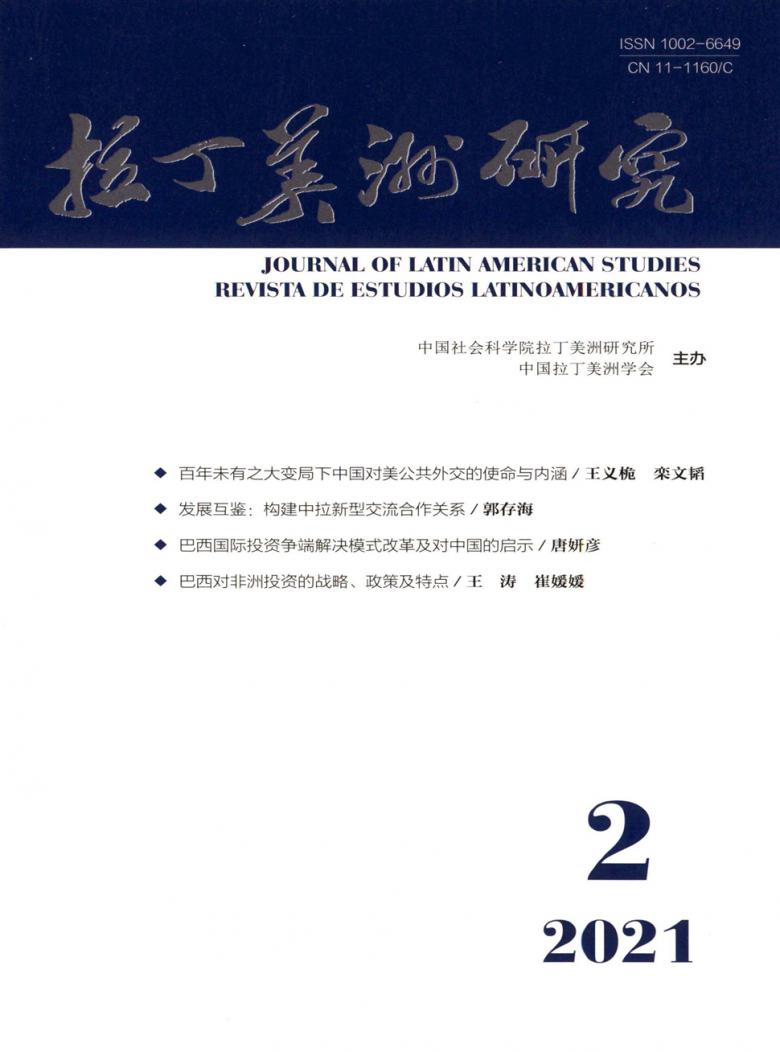在國家和勞工之間:市場經濟下中國工會的角色沖突
佚名
注釋:
[1]參見:Anita Chan,China’s Workers under Assault (Armonk,New York and London,England :M.E.Sharpe ,2001)。 [2]Frances Fox Piven and Richard Cloward ,"Power Repertories and Globalization,"Politics &Society,vol.28,no.3,September 2000,p.416. [3]西方學術界以及持不同政見的海外中國勞工關注組織普遍持這一看法。 [4]Yunqiu Zhang,"From State Corporatism to Social Representation,"in TimothyBrook and Michael Frolic,eds.,Civil Society in China(Armonk,New York:M.E.Sharpe,1997),pp.124-125. [5]Alex Pravda and Blair Ruble ,"Communist Trade Unions :Varieties of Dualism,"in Alex Pravda and Blair Ruble,eds.,Trade Unions in Communist States(Boston:Allen &Unwin ,1986),pp.1-22. [6]Anita Chan,"Revolution or Corporatism?Workers and Trade Unions in Post-MaoChina ,"in David Goodman and Beverley Hooper,eds.,China’s Quiet Revolution:New Interaction between State and Society (New York:Longman Cheshire,1994),pp.162-193. [7]Philippe Schmitter,"Still the Century of Corporatism ?",in PhilippeSchmitter and Gerhard Lehmbruch ,eds.,Towards Corporatism Intermediation(London:Sage,1986),pp.7-52. [8]Richard Baum and Alexei Shevchenko,"The ’State of the State’,"in MerleGoldman and Roderick MacFarquhar,eds.,The Paradox of China’s Post-Mao Reform(Cambridge ,Massachusetts and London,England :Harvard University Press,1999),p.348. [9]Daniel Chirot "The Corporatist Model and Socialism,"Theory and Society,no.9,1980,pp.363-381. [10]Greg O’Leary ,"The Making of the Chinese Working Class,"in Greg O’Leary,ed.,Adjusting to Capitalism :Chinese Workers and the State (Armonk,New York:M.E.Sharpe ,1998),p.52. [11]在這種制度下,國家的政治和政策把工人分成了積極分子和非積極分子、固定工和臨時工、本地工與外地工,等等,由此造成廠內工人的緊張關系。文革中各種對立工人組織的出現與此有關。參見:Andrew Walder ,Communist Neo-traditionalism:Work and Authorityin Chinese Industry (Berkeley:University of California Press,1986);and ElizabethPerry ,"Labor’s Battle for Political Space :The Role of Worker Associations inContemporary China,"in Deborah Davis et al.,eds.,Urban Spaces in ContemporaryChina (New York:Cambridge University Press,1995),pp.302-325 [12]張駿九,“"工會要在國企改革中實現五突破一加強”,載《工會如何參與國企改革》,工會運動參考資料編輯部編,1999年,第183頁。 [13]1998年到2000年,我接觸了不少工會干部,這是我訪談中留下的印象。 [14]訪談,2000年2月。 [15]安立志,"關于工會社會地位的幾點思考",《工運研究》,1996年2月第2期,第7-10頁。 [16]Doug McAdam,Sidney Tarrow ,and Charles Tilly ,Dynamics of Contention(New York:Cambridge University Press,2001),p.30. [17]Adam Przeworski,Democracy and the Market(New York:Cambridge UniversityPress ,1992),pp.54-55. [18]Jeanne Wilson,"The Polish Lesson:China and Poland 1980–1990,"Studiesin Comparative Communism,vol.23,nos.3–4,1990,pp.259-280. [19]有關勞動爭議案件的官方統計數字,可看1995年以來的《中勞動統計年鑒》,此處省略。 [20]Kevin O’Brien,"Rightful Resistance,"World Politics,vol.49,October1996,pp.32,55. [21]中華全國總工會研究室,“中國工會五十年的發展”,《工運研究》,1999年8月,第37頁。 [22]同上。 [23]周萬玲,"勞動爭議的預防和處理取得明顯成效",《工運研究》,1998年8月第16、17期,第37頁。 [24]這一案例來自上海市總工會法律部門。 [25]周萬玲,1998年,第37頁。 [26]訪談,1999年12月27日,上海市工會。 [27]《工人日報》1999年1月17日。 [28]同上。 [29]訪談,1999年12月27日,上海市工會。 [30]Anita Chan and Robert Senser ,"China’s Troubled Workers ,"Foreign Affairs,March/April 1997,p.112. [31]訪談,1999年12月27日,上海市工會。 [32]訪談,2000年6月15日,中華全國總工會。 [33]《工人日報》,1999年8月9日。 [34]同上,1999年7月10日。 [35]《工人日報》,1998年1月17日。 [36]參見:《工人日報》,1998年7月7日;2000年4月24日;2000年8月8日;2000年8月25日。 [37]FBIS-CHI-96-007,April 18,1996. [38]South China Morning Post ,March 26,1999. [39]張友漁,"關于修改憲法的幾個問題",載張友漁著,《憲法文集》,北京:群眾出版社,1982年,第14頁。 [40]陳驥,《改革中的工會和工會的改革》,中國工人出版社,1999年,142頁。 [41]《工會法》第25款。 [42]陳驥,同上。 [43]1999年8月,訪談。 [44]同上。 [45]這條路是貫穿這個城市東西的最重要的交通線。如果它被封鎖,整個城市將陷入癱瘓。 [46]同上。 [47]http://big5.china-labour.org.hk/big5/article.adp?article_id=1528. ; [48]參見:李永海編,《葫蘆島之路》,北京:中國文史出版社,1998年,第164-166頁。 [49]同上,第290-292頁。 [50]盡管這場危險暫時被平息了,但四年后它又爆發了。2000年2月下旬,這個礦發生了幾年來中國最嚴重的工潮。2000多名工人在聽到礦山倒閉的消息后開始抗議,導致騷亂。 [51]參見:Timothy Brook and Michael Frolic,eds.,Civil Society in China(Armonk,New York:M.E.Sharpe ,1997)。 [52]2000年2月29日的《工人日報》簡單報道過這個案例,根據此線索作者做了實地了解。 [53]2001年2月,我與廣州一位勞工問題學者的交流。 [54]柏寧湘,"工人非正式組織:一個急需重視的社會現實",載《海峽兩岸三地勞資關系與勞工政策》,香港:城市大學出版社,2001年,第211-213頁。 [55]參見:“中國工人的覺悟正在提高”,《中國勞工觀察》,多維新聞,2000年10月31日。 [56]趙瑋,《私人企業工會工作概論》,北京:中國經濟出版社,1999年,第95頁。 [57]《中國勞工觀察》,2000年10月31日。 [58]同上,第108頁。 [59]訪談,2000年5月。 [60]Heins Eulau and P.D.Karps,"The Puzzle of Representation :Specifying Componentsof Responsiveness ,"Legislative Studies Quarterly ,No.2(August 1997),pp.243-5. [61]2001年7月在上海進行的調查。 [62]《中國勞工觀察》,2001年10月28日。 [63]2001年7月在上海進行的訪談調查。 [64]參見:Frederic Deyo ,Beneath the Miracle :Labor Subordination in New AsianIndustrialism (Berkeley:University of California Press,1989);and "State andLabor :Modes of Political Exclusion in East Asian Development,"in Frederic Deyo,ed.,The Political Economy of the New Asian Industrialism(Ithaca:Cornell UniversityPress ,1987),pp.182-203. [65]Howard Wiarda,Corporatism and Comparative Politics(Armond,New York,London,England :M.E.Sharpe,1997),p.73.






